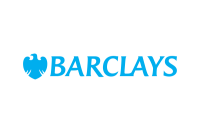
A UK-based multinational banking company. In 2019, it announced that it would stop financing private prison companies CoreCivic and GEO Group, but its current involvement cannot be verified.
Barclays PLC is a multinational banking company headquartered in London. It used to be one of several major financiers of private prison and immigrant detention companies, having provided revolving lines of credit, term loans, and bond underwriting services to CoreCivic and GEO Group. In 2019, it announced, along with several other major financial institutions, that it would exit the private prison industry.
Despite this announcement, Barclays served as the lead underwriter of a $634 million bond sale that would provide financing for GEO Group to build new prisons in Alabama. Following public pressure, Barclays pulled out of the deal. The move caused the bond sale to fall apart and forced Alabama lawmakers to consider alternate funding for the project, including requesting federal funding from the American Rescue Plan. In July 2022, Alabama closed a $509 million bond deal—reportedly underwritten by two private financial services firms, Stephens Inc. and The Frazier Lanier Company—to help build two new state prisons.
In 2022, GEO Group entered into a new credit agreement, replacing a previous agreement that consisted of a $900 million revolving line of credit and a $792 million term loan. Barclays was part of the previous agreement, having provided an undisclosed amount of money to the deal. Unlike in previous years, public disclosures regarding the 2022 agreement only named the administrative agent, Alter Domus. While other lenders are also involved, they were not named. Therefore, it cannot be verified whether Barclays is still involved.
The bank's known past involvement includes:
- In April 2013, CoreCivic issued two sets of bonds—one totaling $325 million, with a maturity date of 2020, and the other totaling $350 million, with a maturity date of 2023. As part of a syndicate of banks, Barclays underwrote undisclosed amounts of both sets of bonds.
Financing War Profiteers
Barclays owns more than $1.2 billion in shares and has provided over $3.6 billion in loans and underwriting to "nine companies whose weapons, components and military technology have been used in Israel's armed violence against Palestinians," according to a 2022 report by the Campaign Against Arms Trade, Palestine Solidarity Campaign, and War on Want. These companies include BAE Systems, Boeing, Caterpillar, Elbit Systems, General Dynamics, QinetiQ, RTX (formerly Raytheon Technologies), Rolls-Royce, and Ultra Electronics.
- In April 2021, Barclays withdrew from its role as the lead underwriter of a $634 million bond sale that would finance prisons in Alabama that would be built and owned by GEO Group.
- In July 2019, Barclays committed to not enter any new financing agreements with private prisons, joining Bank of America, JPMorgan Chase, Wells Fargo, and Truist Financial (which, at the time, was known as SunTrust Banks), and other financial institutions that made similar commitments after facing pressure from activists.
